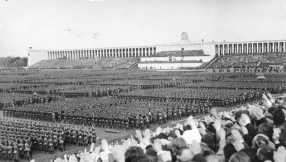Christians do not need a privileged space
Acknowledging his Lordship will always have political implications, and church history bears witness to the many ways in which church and state have both clashed, and compromised over this pressing issue.
The late John Stott offers us a useful, if admittedly simplistic summary in his commentary on Romans 13 where he writes: “To oversimplify four main models have been tried – Erastianism (the state controls the church), Theocracy (the church controls the state), Constantinianism (the compromise in which the state favours the church and the church accommodates to the state in order to retain its favour) and partnership (church and state recognise and encourage each other’s God-given responsibilities in a spirit of constructive collaboration).
Stott is clearly describing the varying expressions of church-state relationships that have emerged since Christianity was first legalised, and then recognised as the official religion of the Roman Empire.
It is important to appreciate the difference between the two because I am convinced we should argue for the first (legal acceptance) but avoid the dangers that flow from the second (official status).
Much is being made at the moment of our Christian heritage and the aggressive secularist tsunami that is sweeping away the legal privileges we have enjoyed for centuries.
But something in me identifies with Minette Marrin who says, “The militant secularists are on the right side in the faith wars. It is why, however reluctantly, the polite and tolerant secularists will have to join them and win the war. There can be no place for faith anywhere within the politic al establishment, no privileged space within the public arena.”
The church does not need such a privileged space. The early church had no such advantage - can you imagine emperors such as Nero or Domitian sitting quietly and twiddling their thumbs while some of their officials led them in prayers to another Lord?
It’s no different today. The United States was founded on the premise that there would be a radical division between church and state, but that has not prevented it being a highly religious country (a lesson we would do well to ponder here in the UK).
We do not need a privileged space – we simply need the freedom to argue our case, and where necessary, the courage to face the consequences of doing so.
Jesus rejected the use of force. Leslie Newbigin understood this, which is why he argued so convincingly that the gospel is unique in that we are called to witness to its truth while being forbidden to use coercion to enforce it. The very nature of the gospel, he says, compels us to be tolerant of denial.
We must respect the God-given authority of the state and should pray for its welfare. As the apostle Paul says, it exists for our common good. We must participate in public debate and argue our case in the confidence that Jesus is the truth, as well as the way and the life. We may well have to suffer the consequences that flow from living in a culture that has eschewed its Christian roots but that is a far more biblical route than relying on the state to enforce our faith.
We must recognise the God-given limits of the state of course, and resist it whenever it usurps an authority that it does not rightly possess. But, above all, we must come to terms with the fact that the only force we need is the force of argument, and the only power we require is the power of the Holy Spirit.
Sadly the church has often gone the other way, but whenever it has done so it has denied the heart of the gospel, and chosen a very different route to the one embraced by its Lord.













